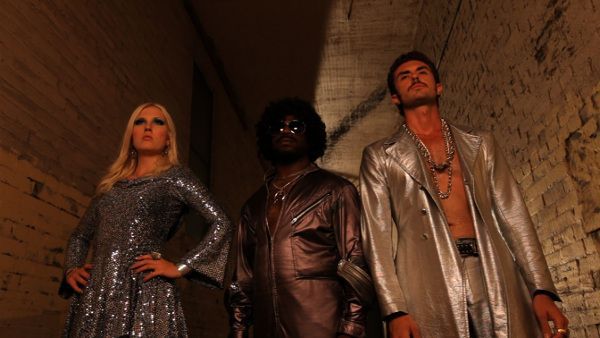Eye For Film >> Movies >> The Secret Disco Revolution (2012) Film Review
The Secret Disco Revolution
Reviewed by: Jennie Kermode

Disco: there's more to it than just the music. Such was its impact on US race relations, gay liberation and feminism that one might almost think there were secret masterminds behind it, pulling the strings - people who invented the music as a tool of social change. That's the theory entertained by this documentary, which gives us three glittery figures performing occult rituals as a backdrop to a tour of clubs, record shops and significant street corners - plus some stonking tunes.
Are there really people out there who didn't know disco had a social impact? Perhaps, but if so it seems unlikely they're the sort of folk who watch documentaries. Never mind - there's plenty more to enjoy here. In between the spooky scenes with the masterminds (who never quite succeed in looking glamorous enough), there are some strong interviews with key figures from the era. Thelma Houston is particularly engaging, and illuminating on the subject of accidental successes. Critic and industry man Vince Aletti helps to build a strong timeline. Other artists discuss everything from drug abuse and exploitation to the adoption of disco material by unwitting right wingers. We see The Village People performing before the US Navy. The Hustle is credited with encouraging young people to pay more attention to each other.

The discourses around race, particularly in relation to the classification of different types of music, form the film's most interesting strand. Parallels are drawn with the impact of jazz, though there's perhaps more to be said about what the blues did to segregation policies and about the odd way music and liberation seem to go in waves, each fading away before another starts. This may relate to the film's curiously isolationist approach to its subject. Aside from a brief mention of Kiss (perhaps hinting at the advent of hair metal), rock is treated as the enemy, the coming of punk greeted with horror - as if the New York Dolls and all the queer punk acts that followed them never existed. Glam rock is ignored altogether. It's entirely approriate that the focus remain on 4/4 beats and polyester, but this separation of disco from its chronological neighbours mitigates against an appreciation of how its ideas lived on.
When all else fails, there is the music. Here the film jumps about, with nothing being played for very long, but in its way this suits the subject, the hectic whirl of dancefloors and parties that its celebrity interviewees describe. It's a fast paced tour that will still provide points of connection for relative newcomers and do enough to please existing fans. For the latter, this isn't a film that will deliver great revelations, but it fills in detail nicely and will make a solid B-side entry in any serious genre film collection.
Reviewed on: 15 Feb 2013

















